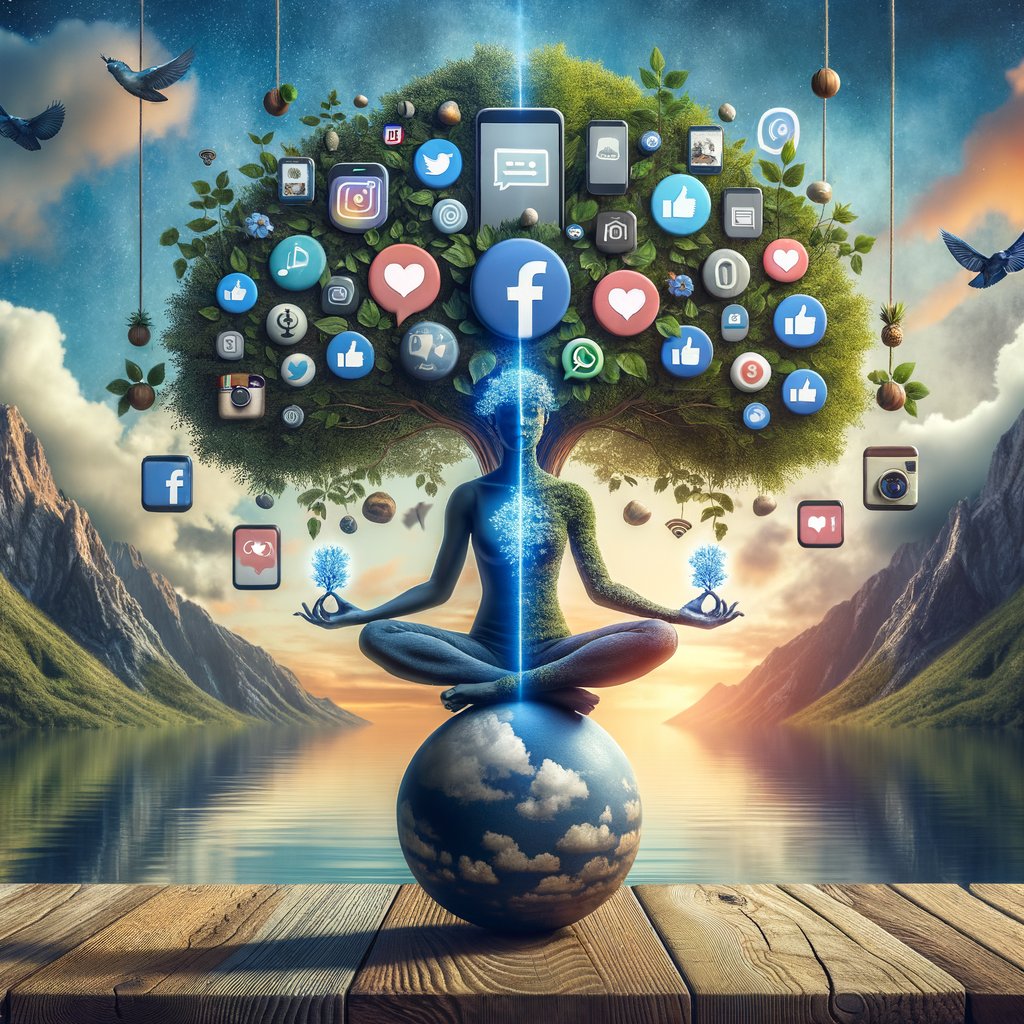Physical Address
304 North Cardinal St.
Dorchester Center, MA 02124
Physical Address
304 North Cardinal St.
Dorchester Center, MA 02124

As we navigate through the digital age, social media has become an integral part of our daily lives. It serves as a platform for communication, information dissemination, entertainment, and even business transactions. However, despite its numerous benefits, it can also pose significant challenges to mental health if not handled appropriately.
Social media is indeed a double-edged sword. On one hand, it provides opportunities for connection and engagement that were unimaginable just a few decades ago. On the other hand, excessive or improper use can lead to feelings of isolation, anxiety, depression and other mental health issues.
Research suggests that heavy social media use may be associated with mental health problems such as low self-esteem, anxiety and depression. This can be due to various factors such as cyberbullying, comparison with others’ lives (often idealised), addiction to online validation or simply the overwhelming amount of information available at our fingertips.
Finding balance in our social media usage is crucial for maintaining good mental health. Here are some strategies you might consider:
Set boundaries on how much time you spend on social media each day. There are many apps available that can help track your screen time and set reminders to take regular breaks from your devices.
While social media allows us to connect with people around the world instantly, nothing beats face-to-face interaction. Make sure you’re spending quality time with friends and family offline too.
Follow accounts that inspire, motivate and uplift you. Unfollow or mute accounts that make you feel inadequate, anxious or depressed.
Be aware of how much time you’re spending on social media and how it’s affecting your mood. If you notice that your usage is causing stress or anxiety, it might be time to take a break.
Digital literacy plays a crucial role in helping us navigate the world of social media responsibly. Being digitally literate means understanding the nature of online content, recognising its potential impacts (both positive and negative), and knowing how to use digital tools safely and effectively.
If you’re struggling with mental health issues related to social media use, don’t hesitate to seek help. Mental health professionals can provide support and strategies for managing these challenges effectively. Remember, there’s no shame in seeking help when you need it.
Social media is here to stay, and its impact on our lives will only continue to grow. It’s up to us to learn how to use it in a way that benefits our mental health rather than harming it. By finding balance in our social media usage, we can enjoy the benefits of this powerful tool while also protecting our mental wellbeing.